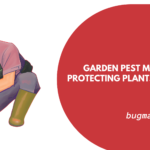
Maintaining a vibrant and thriving garden in Dhaka’s unique climate comes with its own set of challenges, especially when it comes to managing pests that can wreak havoc on your plants. As any avid gardener knows, pest management is an essential aspect of nurturing a flourishing garden. In this article, we’ll delve into effective strategies for protecting your plants in Dhaka’s climate, helping you cultivate a stunning garden sanctuary.
Understanding Dhaka’s Climate
The Influence of Dhaka’s Climate on Pest Activity
Dhaka’s tropical climate, characterized by high humidity and temperature, provides an ideal environment for various pests to thrive. Warm and humid conditions create the perfect breeding ground for insects, fungi, and diseases that can harm your plants.
Understanding the climatic factors that contribute to pest activity is crucial in implementing effective pest management strategies.
Common Garden Pests in Dhaka
Whiteflies and Aphids: These tiny insects feed on plant sap, weakening the plants and spreading diseases.
Snails and Slugs: These slimy creatures are nocturnal and can cause severe damage overnight by eating leaves and stems.
Fruit Flies: These pests target fruits, causing them to rot and drop prematurely.
Fungal Diseases: Damp conditions encourage fungal growth, leading to leaf spots, mildew, and other diseases.
Prevention and Control Measures
Implementing Preventive Measures
Choose Resistant Plant Varieties
Selecting plant varieties that are naturally resistant to common pests in Dhaka’s climate can significantly reduce the likelihood of infestations. These plants have evolved mechanisms to fend off pests, making your job easier.
Proper Watering and Drainage
Overwatering can create a damp environment that attracts pests and encourages fungal growth. Ensuring proper drainage and avoiding waterlogging will help keep pests at bay.
Natural and Environmentally-Friendly Solutions
Beneficial Insects
Introducing beneficial insects like ladybugs and lacewings can help control pest populations naturally. These insects prey on harmful pests, acting as a biological defense mechanism.
Neem Oil Spray
Neem oil, derived from the neem tree, is a natural insecticide that disrupts pests’ growth and development. Regular application can deter and control various pests effectively.
Companion Planting
Certain plants can repel pests when grown alongside other crops. For example, marigolds can deter aphids, while garlic can repel various insects.
Integrated Pest Management (IPM)
Embracing Integrated Pest Management
Monitoring and Identification
Regularly inspect your plants for signs of pests or diseases. Early detection allows for prompt action before the infestation becomes uncontrollable.
Cultural Practices
Implementing proper cultural practices such as crop rotation, removing debris, and maintaining proper spacing can create an inhospitable environment for pests.
Targeted Treatments
If an infestation occurs, consider targeted treatments like introducing nematodes to control soil-borne pests or using insecticidal soap for small-scale pest problems.
FAQs
Is neem oil safe for other beneficial insects?
Yes, neem oil is generally considered safe for beneficial insects and does not harm them.
Can I use chemical pesticides in an organic garden?
It’s recommended to avoid chemical pesticides in organic gardens, as they can harm beneficial organisms and soil health.
How often should I inspect my plants for pests?
Regularly inspect your plants at least once a week, paying close attention to the undersides of leaves and new growth.
Are there any plants that naturally repel a wide range of pests?
Yes, plants like basil, rosemary, and mint have repellent properties against various pests.
Where can I find more information about integrated pest management?
You can find comprehensive resources on integrated pest management from local agricultural extension services or gardening websites.
Conclusion
In Dhaka’s climate, maintaining a pest-free garden requires a proactive approach that combines preventive measures, natural solutions, and integrated pest management practices. By understanding the unique challenges posed by the climate and being vigilant in pest monitoring, you can create a thriving garden that stands resilient against pest pressures.
